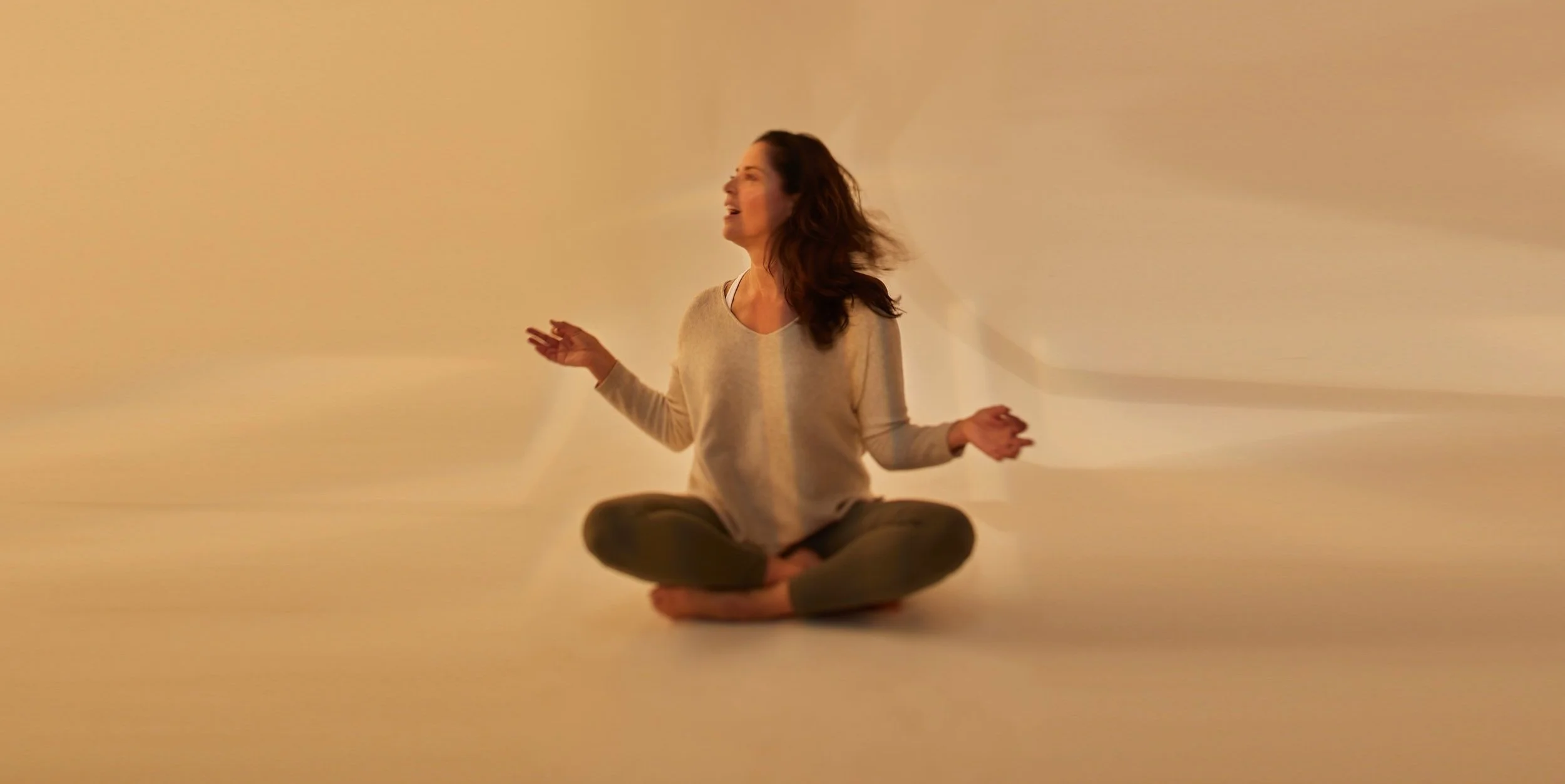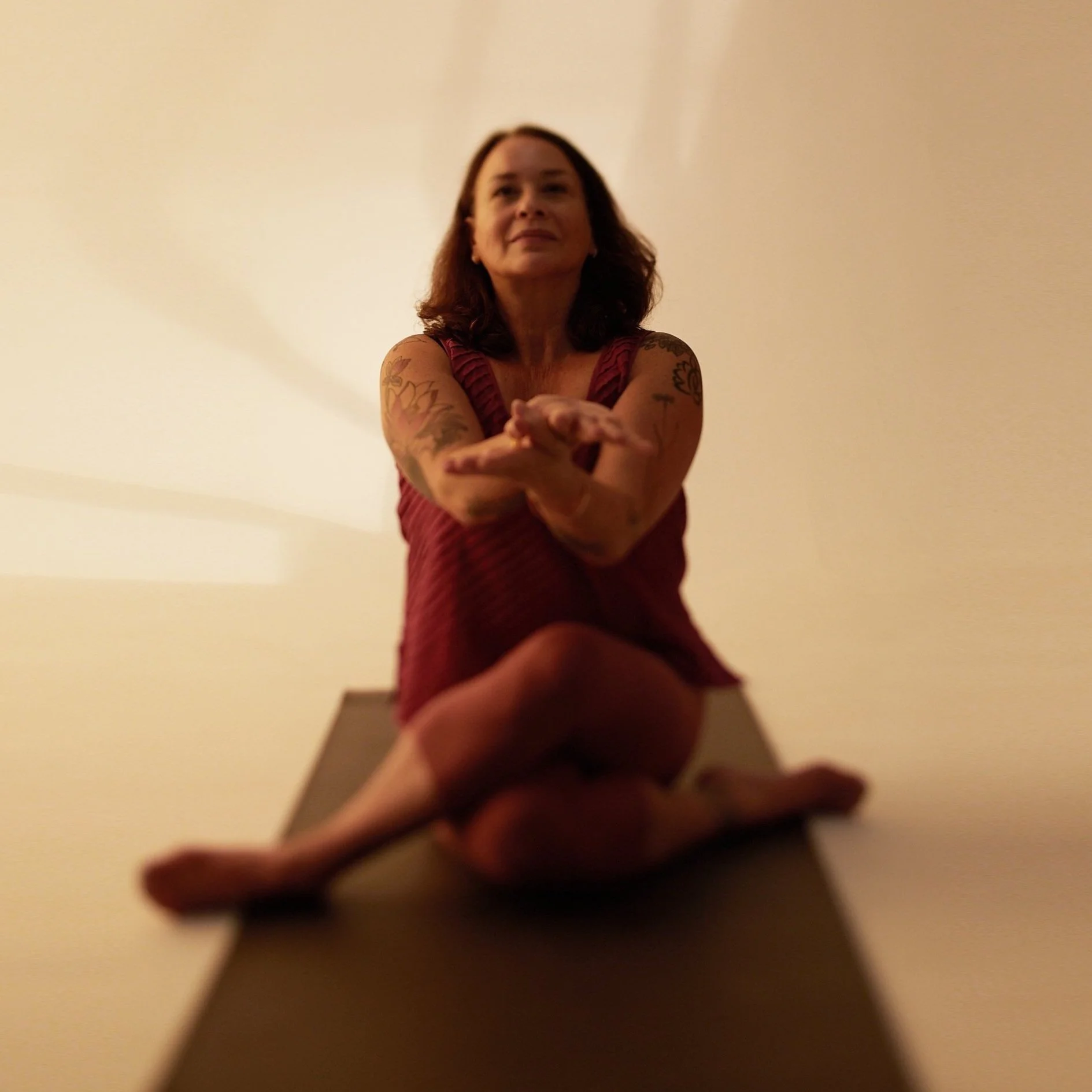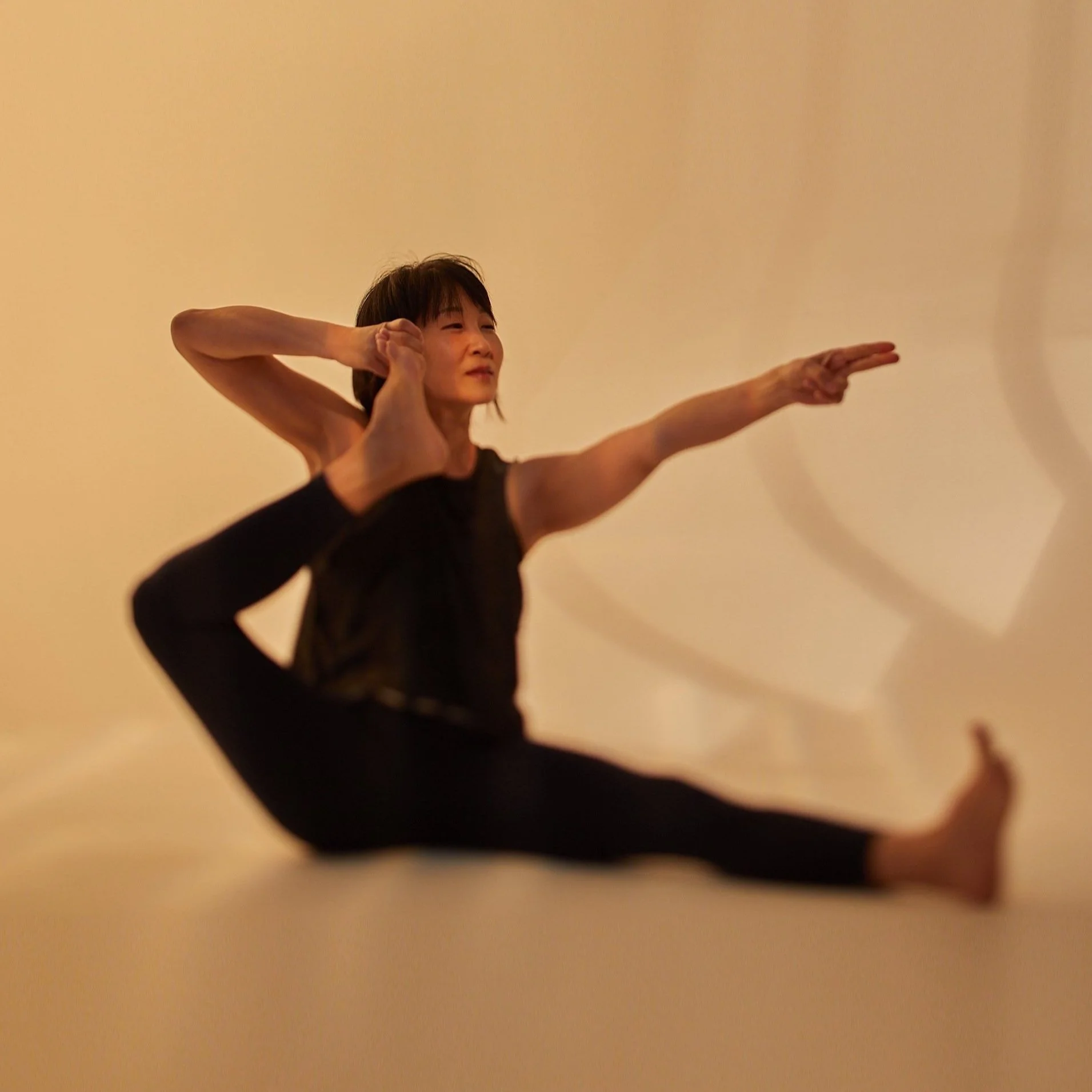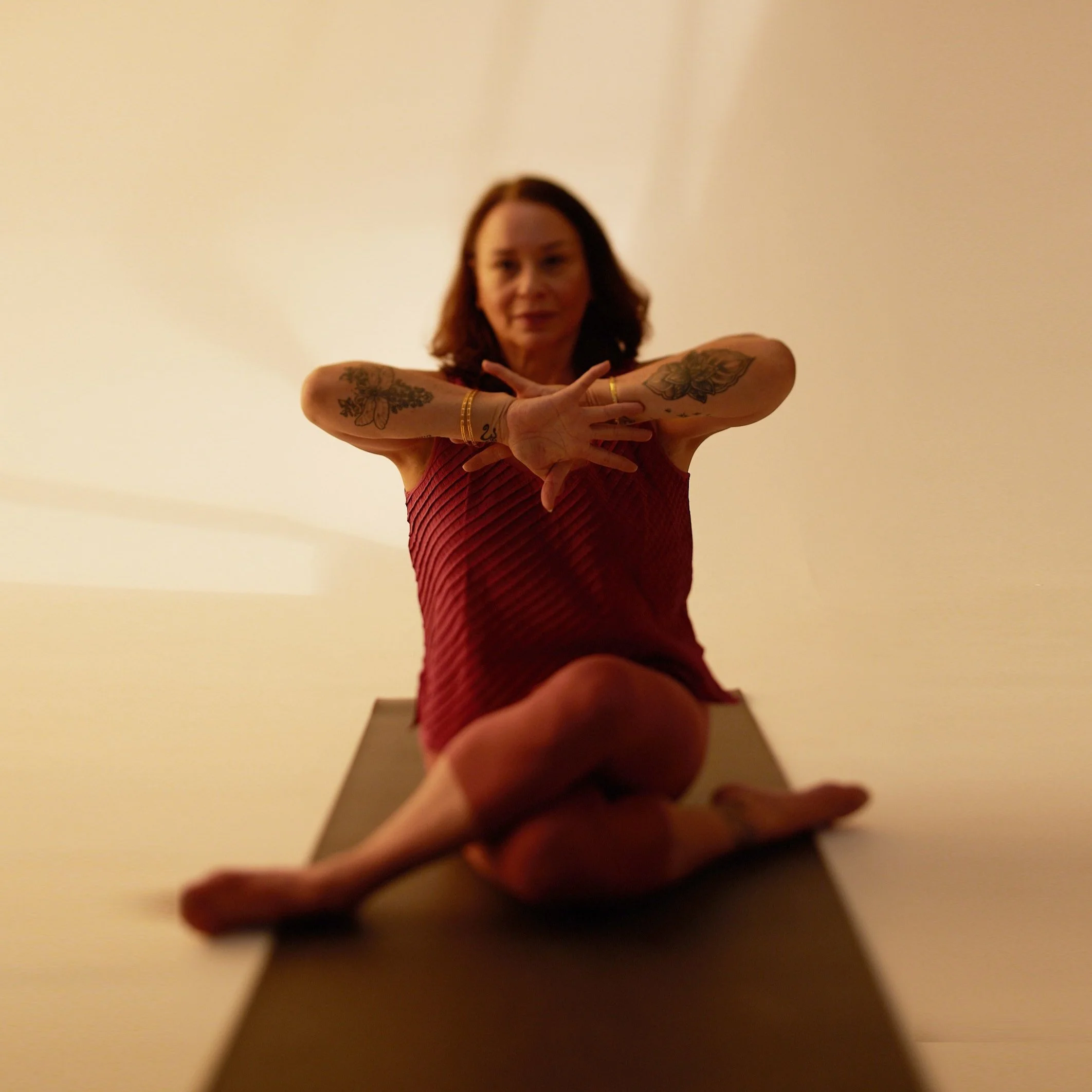300 HOUR TEACHER TRAINING / CONTINUING EDUCATION
Yogaspace is an International Yoga Alliance Registered Teacher Training School that has developed a solid and longstanding reputation for excellence over twenty nine years. We honour the historic roots of yoga alongside a modern, evidence based foundation. We are proud to see our graduates preferentially hired and a notable prominence of our alumni who have become yoga leaders and educators locally and internationally. We have worked hard to develop an outstanding curriculum and to sustain the most excellent faculty possible. Our lead trainers are among the most experienced and accomplished 500 hour ERYT yoga educators in Canada.ABOUT THE PROGRAM
The 300 hour program is a comprehensive skills training for 200 hour graduates interested in advancing their teaching skills and developing specialization in the active and contemplative practices of Hatha Yoga. Led by a faculty of esteemed Canadian lead trainers teaching in their area’s of expertise, the program is offered through a series a courses that run annually and can be taken as time and budget permits until 300 hours are completed. Our 300 hour graduates command greater employment opportunities in a wide variety of settings.RESTORATIVE YOGA
AND THE CHAKRA’S:
TEACHING AN INNER PRACTICE
-
2 Fridays, 10:30am - 4pm
2 Saturdays, 11:30am - 5pm
2 Sundays, 11:30am - 4pm30 Hours - $950
Early Bird: $850 (If paid February 20)In the complexity of today’s shifting world, and all the uncertainty that goes along with it, our innate skills for inner awareness and letting go, often fall by the wayside. Restorative yoga, which has been called ‘the yoga for the 21st century’ is a practice which restores wellness, ease and harmony in a system that has become overloaded and hyper stimulated. The restorative practice adapts many of the fundamental postures of the hatha yoga system bringing about their healing properties by cultivating our ability to yield to the force of gravity. Practiced predominantly in a reclined or a sitting position with the support of props to achieve varying effects, restorative yoga aims to transport the practitioner into a state of deep rest and inner quiet where the body and the mind can release accumulated tension. In this course, students will develop the skills required to lead a safe and effective restorative yoga practice for both in-class as well as online learning.
Training Content:
The full body of work that comprises the restorative yoga practice as originally developed by BKS Iyengar.
How to create and develop intelligently crafted restorative yoga sequences for various settings and circumstances.
The specific use of the many yoga props that are used to support and sustain long held postures.
How to use props to adapt and modify each posture in the curriculum for every level of student and varying circumstances.
Common injuries and chronic conditions that relate to the muscular/skeletal system and the nervous system.
Postures that are both indicated and counter-indicated for the above conditions.
All aspects of how to create a restorative yoga practice that fosters meditative inner awareness.
How the breath can be used to bring about physical and mental balance and well-being.
Interweaving the key elements of yoga philosophy, as it pertains to restorative yoga, into your teaching.
Using language effectively to both instruct and impart the more subtle and meditative aspect of the the practice.
Basic set up, full execution, modifications, vocal assists, inspiring communication & language, vocal quality, demonstration and timing of each pose and full sequences.
Includes:
4 Monday night Restorative Yoga & Meditation Classes online with Hali.
A comprehensive training manual with photographs of all poses and props – PDF Format.
All fees are subject to HST and are in Canadian Dollars.
TRAUMA INFORMED EMBODIMENT PART 2: SOMATICS AND APPLIED NEUROLOGY
-
Friday, 9:30am - 4pm
Saturday, 11:30am - 7pm
Sunday, 11:30am - 4pm20 Hours - $700
Early Bird: $650 (If paid by March 31)This training focuses on how somatic practices and applied neurology can support regulation, embodiment and healing after overwhelming or traumatic experiences. It is designed as an extension of our Trauma Informed Yoga program and can also be taken as a stand alone training for those wanting to deepen their understanding of the nervous system.
You will learn how the body stores experience, how behaviour is shaped by physiology and perception, and how somatic practice can restore safety, presence and self connection.
Our studies explore two main streams of learning:
Contemporary Somatics
This stream introduces practical tools that help people reconnect to their inner world with care and sensitivity. You will learn Fluid Focusing as a trauma informed approach to mindfulness, develop an understanding of basic somatic principles such as resourcing and pendulation, and explore Clinical Somatic Exercises that support regulation and embodiment. We will also look at therapeutic touch through the lens of C fibre activation and its role in soothing and connection.
Applied Neurology
Here we explore how the brain interprets threat and how simple nervous system inputs can shift perception and state. You will be introduced to how the vestibular and ocular systems influence regulation, along with the roles of the insula and the brainstem in awareness, dissociation and safety. This stream supports practitioners in understanding why people respond the way they do and how to introduce inputs that help create stability and trust in the body.
This program blends theory with experiential practice and offers tools that can be integrated into yoga teaching, clinical work, counselling, coaching or personal practice.
Who will Benefit from this Course?
This course is suitable for yoga teachers, therapists, clinicians, bodyworkers and anyone supporting people who have experienced trauma. No previous yoga experience is required.
All fees are subject to HST and are in Canadian Dollars.
CRAFTING TRANSFORMATIONAL EXPERIENCES: EVENT AND RETREAT MASTERY FOR YOGA TEACHERS
with Jessica Ullathorne
-
Friday, 11am - 5pm Online
Saturday, 11:30am - 5pm In-Studio
Sunday, 11:30am - 4pm in Studio20 Hours - $650
Early Bird: $600 (If paid by April 17)This training is designed for yoga teachers, movement educators, wellness practitioners, and anyone ready to create meaningful experiences that go beyond the typical class format.
Whether you're drawn to intimate 2-hour workshops, transformative day-long retreats, or week-long international immersions, this program gives you the complete framework to design, price, market, and facilitate offerings that feel aligned with your authentic teaching voice.
You'll leave with three fully developed retreat concepts—a workshop, a day retreat, and an international retreat—plus the practical skills to launch them confidently. We move beyond inspiration into implementation, covering everything from experience design and nervous system-aware facilitation to venue contracts and profit planning.
Rather than overwhelming you with theory, this training focuses on building real offerings you can launch immediately. Through hands-on creation labs, peer feedback sessions, and step-by-step business planning, you'll develop both the creative vision and the logistical mastery needed to host transformational experiences that serve your community while supporting your growth as an entrepreneur.
What You'll Create:
A complete 90-120 minute workshop with structure, pricing, and marketing copy
A full day retreat design with schedule, budget, and logistics plan
A week-long international retreat concept with venue considerations and financial projections
Marketing and launch strategies including social media planning and email campaigns
Practical tools for holding space, managing group dynamics, and facilitating transformation
Business frameworks for contracts, insurance, deposits, and profit planning
Who is this Course for:
This course is for teachers ready to expand beyond regular classes, seasoned facilitators looking to refine their approach, and anyone called to create deeper containers for growth and connection.
Included:
An Interactive creative & business strategy workbook
All fees are subject to HST and are in Canadian Dollars.
TEACHING THROUGH TOUCH:
A HANDS-ON ASSISTS TRAINING FOR YOGA INSTRUCTORS
-
2 Saturdays, 11:30am - 6 pm
2 Sundays, 11:30am - 3pm20 hours - $650
Hands-on assists are an important part of the yoga teacher’s toolkit. Skillful touch communicates volumes about the form and essence of each yoga pose while establishing a safe learning environment and building trust with students. Assisting with clarity and compassion not only benefits students but it also enlivens your experience as a teacher and expands your ability to serve the people in your classes as unique individuals with diverse needs.
During this intimate and in-depth training, you will learn the value of hands-on teaching rooted in consent. You will assist yoga poses that are common to a number of yoga traditions, explore ways to personally embody the principles of steadiness and sweetness, and develop confidence in your own individual approach to touch. You will learn how to:assist standing poses, balancing poses, seated forward bends, twists, backbends, inversions, vinyasa flow and savasana
assess the physical and energetic alignment of asanas
develop a sensitive, grounded, and effective touch
protect yourself from injury and preserve your own vitality by using props and techniques for leveraging your own body weight
You will cultivate your skills in a practical, hands-on environment where you will watch, photograph and make notes on detailed demonstrations before giving and receiving touch with a variety of partners.
CHAKRA KRIYA: AN EXPLORATION OF THE ESOTERIC PHYSIOLOGY OF YOGA AND ITS APPLICATION TO PERSONAL PRACTICE AND TEACHING
-
2 Saturdays - 11:30am - 5pm
2 Sunday s- 11:30 - 4pm20 Hours - $550
Training Content
Just as the the practice of asana fosters a deeper connection to the physical body, the aim of kriya yoga is to cultivate an awareness of the subtle body. The subtle body is the internal landscape which houses our spiritual essence, and is where our spiritual energy centres, the chakras, reside. Through the various practices of kriya yoga, these energy centres are brought to light, balanced and ultimately awakened. In this training, we will study, practice and learn how to effectively share these transformative practices with others.
What you will learn
• Mudras used to aid in deepening meditation our practice
• Bandhas and how they are used in kriya yoga
• Chants and mantras used in kriya yoga
• Advanced pranayam practices in combination with:
• Mudrā
• Bandha
• Chanting
• Specific asana based movements
• Meditation techniques
• Chakra visualizations
• Short kriya yogasequences for each of the six chakras from mūladhāra to ajñā
• The skills necessary to safely and effectively offer these practices to others in class settings
Who is this training for?
• Yoga teachers of all disciplines who wish to gain a deeper insight into the chakras and the kriya yoga system
• Practitioners who wish to explore another dimension of their practice
• 200 hour graduates who are ready to go to the next level of education and practice
YIN YOGA TRAINING
-
2 Fridays, 9am – 4:30pm
2 Saturdays, 11:30am – 6pm
2 Sundays, 11:30am – 4pm50 Hours $1395
Early Bird $1295 (If paid 1 month before the start date)Yin Yoga is an integrative practice that combines observation, sensation and stillness. Positions are held for 3-5 minutes in a passive way. The weight of the body and the force of gravity do all the work. With each exhale, there is the potential to do less, to let go, to relax into the shape.
In these suspended moments, the student has the opportunity to listen to their body. Sensation is the language of the body and with practiced attention the student has the potential to tune into what the body really needs. When we attend to sensation with no agenda or expectation, we can re-establish healthy movement patterns, release negativity and awaken to the peaceful truth that underlies all reality.
Benefits of Yin Yoga
Soothes reactive tendencies
Builds the capacity to be patient and tolerant
Relationships become more harmonious
Improves interception (the ability to listen and interpret inner sensations)
Improves neuroception (the ability to detect danger in your environment)
Improves proprioception (how you orient yourself in time and space)
Realigns bones at joints, reducing pain
Redistributes tension through the fascial net
Excellent for facilitating detoxification as fascial adhesions are removed
Restored shearing (the glide between tissues)
Is often a stepping stone into the world of meditation
Training Content:
Develop a strong foundation in the psychology of yoga.
Learn three concise and easy to follow body maps, from which you will learn to build thoughtful, therapeutic and engaging classes.
Chakra Theory (Psychology of Indian yoga)
Meridian Theory (Psychology of traditional Chinese Medicine)
Myofascial Trains (The hardware that carries the mental and emotional vibrations through our physical make-up)Theory
What is Yin Yoga
History of Yin Yoga
Yin and Yang Theory – The Fundamental Principles of Traditional Chinese Medicine
Organ Meridian Theory – The physical, mental and emotional qualities of the twelve main organ meridians
Chakra Theory – Explore the qualities and attributes of the seven main chakras that reside along the main energetic channel
Analyze the nature of fascia and the location of the twelve myofscial lines. Compare how fascial trains correspond to both the meridian system in Traditional Chinese Medicine and the Chakra System of traditional yoga
Learn the defining principles of Yin Yoga which enable the safe manipulation of fascial fabric
Practice
Learn all 37 Yin Postures, their variations and how to prop them
Meditation – To safely manipulate fascia, Yin postures are held for 3 – 10 minutes. Here the student has an opportunity to explore the art of stillness amid physical intensity. Yin Yoga can be an effective bridge into a steady meditation practice, even for the busiest of minds.
Pranayama – Introduction to the Abandha Breath and how to work with the bandpass in a Yin way.
Sequencing
Learn to sequence classes that take into consideration your students mental, physical and emotional condition by applying your knowledge of meridians and chakras to the manipulation of myofascial trains.
Posture Assessment
Learn how to gather information about your clients emotional and mental state by assessing their posture.
One-on-One
Yin Yoga therapy is a very effective way to work with people who have autoimmune dysfunction. Conditions like arthritis, asthma, psoriasis, anxiety, panic disorders, high blood pressure, Irritable Bowel Syndrome, acid reflux, poor circulation and depression can be helped significantly with one-on-one instruction. Learn how to do proper intakes and design programs for
your students unique circumstances.Classes
For those who teach in classroom settings, Yin Yoga is a highly effective way to work with diverse groups. People who are new to yoga, experienced practitioners, students of various ages and different levels of fitness can effectively work together. Learn to design sequences that are applicable to, and easy to adjust for varying abilities and capabilities.
Who Would Benefit from this Training?
Understanding the science behind Yin Yoga compliments many unique and diverse backgrounds.
Yoga Teachers, Massage Therapists, Psychotherapists, Chiropractors, Reiki Practitioners and Life Coaches are just some of the many healers who can apply the knowledge of Yin Yoga to expand their understanding of the psychosomatic relationship
and their offerings.Hours and Certification
This training is a six day + homework, 50 hour intensive and counts as Continuing Education with the Yoga Alliance, for certified Yoga Teachers seeking to further their studies and accreditations.
The Venue
Building resilience requires a safe and supportive environment. As one of Toronto’s oldest and most established yoga studios, Yogaspace is the perfect venue for this type of exploration.
What’s Included
200 page training Manual – PDF Format
1 Month Complimentary In Studio Class Pass
All fees are subject to HST and are in Canadian Dollars
TRAUMA INFORMED EMBODIMENT PART 1: YOGA, SOMATICS AND NERVOUS SYSTEM SCIENCE
-
1 Thursday night 6 – 9pm
2 Saturdays 11:30am - 7pm
2 Sundays 11:30am – 4pm30 Hours: $950
This 30-hour Yoga Alliance–registered training welcomes psychotherapists, social workers, yoga teachers, educators, and anyone seeking personal growth. Together, we explore how trauma shapes both body and mind—and how compassionate, embodied practices can support resilience and healing.
Through a thoughtful blend of adapted yoga, applied neuroscience, and contemporary somatics, you’ll learn to cultivate spaces that feel safe, inclusive, and grounded. Rather than offering techniques alone, this program emphasizes understanding: the “why” behind how yoga and somatic practices support regulation, connection, and a more balanced nervous system.
Whether you’re a clinician integrating somatic awareness into your work, a teacher creating trauma-informed learning environments, or an individual on your own journey of healing and discovery, this course provides the knowledge and tools to nurture resilience—within yourself and within the communities you serve.
What’s Included:
85 page training Manual – PDF Format
2 week Complimentary In Studio PassAll fees are subject to HST and are in Canadian Dollars.
COMING SOON: FLOWYOGA TEACHER TRAINING
-
-
Payment is due upon registration to secure your spot in a course. Once payment has been made, refunds may occur up until 1 month prior to the start date of a course. No refunds or exchanges will be given within the final month before a course begins. There are no refunds for missed classes within a training course.











